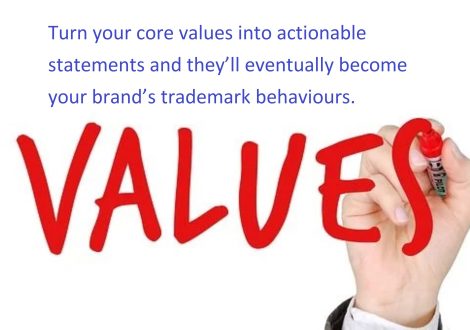In today’s digital age and 24/7 global marketplace, reputation management for some, has become an online practice of burying bad reviews and swamping the internet with positive content to ‘magically’ restore a good name. This approach is one-dimensional, reactive and superficial, and fails to recognise that reputation management is more holistic, complex and authentic than simply ‘cleaning up’ an online profile.
Best practice reputation management is proactive, informed by reputational intelligence, backed by strong strategy, led from the top and integrated across an organisation. It was interesting to hear at the Public Relations Institute of Australia conference in September that Telstra has now built company reputation into its bonus structure for employees.
Consistency of intention, language and action enhances reputation
Proactive reputation management starts with organisational culture. Like the foundations of a house, the elements of culture – shared purpose, beliefs and values – are the pillars of an organisation that galvanise employee mindsets to achieve business objectives. Not only does culture influence employee morale, productivity and retention, the collective mindset culture nurtures also has a direct bearing on the customer experience, ultimately defining company brand and reputation.
Integrating and aligning company culture with the other brand-defining dimensions of the business, including corporate communications, customer experience and citizenship, is a powerful, proactive approach to reputation management.
When organisational beliefs, values and a strong sense of purpose (culture) are embedded within marketing messages and customer touchpoints (communications), then faithfully delivered upon through the product/service (customer experience) and corporate social responsibility activities (citizenship), the consistency of intentions, words and actions fosters trust, builds credibility and enhances reputation.
Improved leadership capability empowers reputational ownership
This integration of reputation management across the business, however, must be supported by improved organisational leadership capability such that leaders can readily identify reputational risk, as well as reputational opportunities, as part of everyday business planning and decision-making activities. Leaders can’t own or be accountable for organisational reputation if they’re not empowered to do so.
CRO must have a seat at the boardroom table
The CRO (Chief Reputation Officer) must also have a place at the boardroom table to provide counsel on key business decisions. Many times during my career I’ve seen key business decisions, such as the introduction of a new policy or product design, or change to pricing strategy and service delivery, made without input from the CRO or the reputation team, increase reputational risk then result in reputational damage from customer backlash or public fall out. Oftentimes, there hasn’t been due consideration or in-depth understanding by key decision-makers about how the business decision may impact on, or be perceived by, internal and external stakeholders.
When organisations take a proactive, aligned and holistic approach to reputation management they not only position themselves to more effectively nip issues and crises in the bud, but they also empower themselves to get on with the job of doing great business and strengthen their good name in the process.
May the positive ripple effect of your work enhance your reputation!
©Ros Weadman 2022
Ros Weadman is a brand communication and reputation specialist who combines her professional expertise in strategic communications, psychology and education to help people and organisations build a purpose-driven brand and strong positive reputation.
To receive this enews straight to your inbox, subscribe here. You can connect with Ros via email or by phone 1800 677 600.



